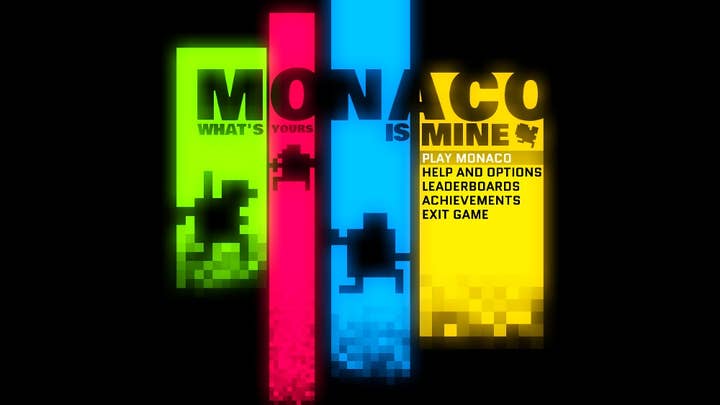Gender issue a chicken and egg problem, says Monaco dev
Andy Schatz on the difficulty of making the industry more hospitable to women, indie tensions, and why you won't see Monaco on mobiles
Much of the talk at last month's Game Developers Conference was about gender issues. The week before the show, fallout from sexual jokes made by attendees at PyCon developer conference put gender issues in tech at the forefront of our collective consciousness. During the show, there were panels on diversity and the #1ReasonWhy hashtag. It spilled out into after-hours events as well, with Brenda Romero resigning from her role with the International Game Developers Association after the group paid models to dance at its party.
On the last day of the show, GamesIndustry International caught up with Pocketwatch Games' Andy Schatz, whose game Monaco won the Independent Games Festival grand prize in 2010 and is completing its long road to release later this month. While the interview covered a range of issues facing independent developers, it started like many GDC-week conversations, with gender.
When asked if the recent clamour over the treatment of women in games was evidence that actual change was happening or merely loud hand-wringing, Schatz said there was a serious drive to make the industry more hospitable for women. However, he seemed unsure of how much progress it had yielded, and what could be done to prevent scenarios like the PyCon flare-up from recurring.
"Whether or not these comments are innocuous, whether or not we're going too far, given the state of the industry, it does feel like a boy's club."
Andy Schatz
"We've got a chicken and egg problem," Schatz said. "Whether or not these comments are innocuous, whether or not we're going too far, given the state of the industry, it does feel like a boy's club. No matter how you feel about the issue of comments like that. So at least by its existent structure, it makes it a little bit unwelcome for women to enter the industry. But until more women enter the industry, it will always feel that way."
Schatz went on to say it's important to be respectful, but added that it's crucial that designers in the industry, both men and women, can talk about sex and gender.
"It's not something we can shut up about, so there's definitely a huge tension there," Schatz said. "It's a hairy subject. I think what we can all agree on is we'd like to have more women in the industry and it's worth being particularly conscious of doing what we can in order to make that happen."
Industry tension is by no means limited to gender issues. Schatz said there are long-standing divisions even within the indie scene (as manifest by some audience heckling Schatz received while hosting the Independent Games Festival awards show).

"I don't think we've been one big happy family since I can remember," Schatz said. "I went indie from a career in the AAA industry eight-and-a-half years ago. Even back in the early days, there was a community of people that was approaching things from a more business perspective, and a lot of casual game designers came from there. And then there was the TIGSource crowd, the artistic, young, pixel-art, sort of obnoxious, internet-type kids over here. And the two of them clashed from the beginning."
Those tensions have been further complicated by the heightened stakes in the indie scene. Lower barriers to entry and breakout successes like Minecraft have been great for the indie scene, but they've also created an overcrowding of developers competing for a limited amount of attention. Schatz said he hopes the indie community doesn't respond to that intra-competition by taking a defensive posture, but he did clearly identify it as another source of tension in an evolving scene.
"[A]t this point, there's no line of division between indie and the rest of the industry. It's just a continuum and there's overlap. You can't draw a line around us anymore."
Andy Schatz
"It's not so much that indie culture has changed, but the industry has moved in the direction that we've been trying to push in," Schatz said. "Which is really cool. Like I said in the IGF intro, we're not The Clash anymore. We're Green Day. So it's harder to be counter culture because the whole industry kind of likes us. What is nice is that with indie, you used to be able to constrain it and draw lines around it. But at this point, there's no line of division between indie and the rest of the industry. It's just a continuum and there's overlap. You can't draw a line around us anymore."
When asked about Sony's apparent push to get indie developers to support PlayStation 3 and PlayStation Vita, Schatz said the Vita would be particularly well suited to the game. However, he has "no active plans" for it right now, and lamented the machine's struggle to be taken seriously in the market.
"It could be that consumers have just moved on from a dedicated handheld machine," Schatz said. "But it is the best handheld platform we've ever had. It would be a shame to see something that is such a good platform not do well. But if it doesn't do well, it's because of market forces out of their control."
There has been no shortage of concern that smartphones and tablets have been eroding the market for dedicated handhelds, but the potentially huge audience on those new devices isn't going to sway Schatz to bring Monaco to mobiles. Schatz said that when he was working in mainstream game development in 2003, he told his employer he would quit if they tried to put him to work on mobile titles.
"I do play mobile games as a time waster, something I do while I stand in line," Schatz said. "And I have no problem with people who enjoy making them. But to me, the act of making something like that is a waste of my life. I just have no interest in doing it."
"To me, the act of making [mobile games] is a waste of my life. I just have no interest in doing it."
Andy Schatz
Ouya also seems to be a long-shot for a Monaco port, and not just because it's Android-based.
"The hardware's not good," Schatz said. "I don't have the specs in front of me, but it's like a last-generation tablet, basically. They have a chicken and egg problem too. In order for them to be successful, they're going to have to get some big titles. They're going to have to get someone to take a risk because they don't have an audience. And the only people who are going to take a risk will do it because they have an audience."
As for the platforms Monaco is definitely coming to, that would be PCs, Macs and Xbox 360. The PC and Xbox 360 versions are set to launch April 24, with the Mac version following "soon."
This is one in a series of GamesIndustry International interviews with independent developers on the changing role of indies in the industry landscape.

